-
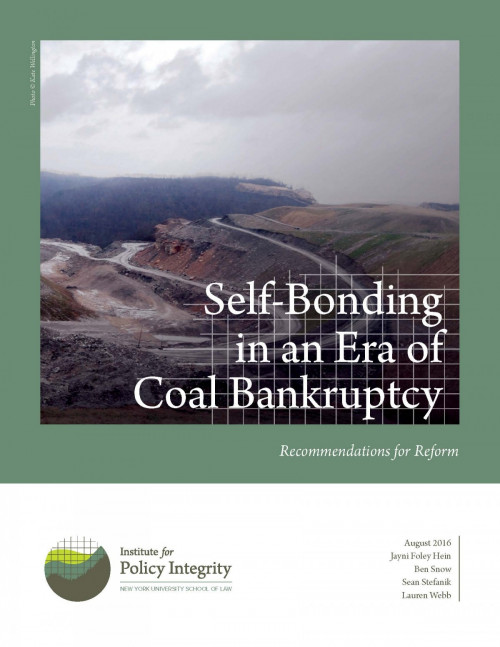
Self-Bonding in an Era of Coal Bankruptcy
Recommendations for Reform
Federal law requires coal companies to reclaim and restore land and water resources that have been degraded by mining. But at many sites, reclamation occurs slowly, if it all. Mining companies are required to post performance bonds to ensure the successful completion of reclamation efforts should they become insolvent, but regulators have discretion to accept “self-bonds,” which allow many companies to operate without posting any surety or collateral. As the coal industry experiences financial distress and coal companies declare bankruptcy, the viability of future reclamation work is endangered. This report offers recommendations to help regulators better assess coal companies’ financial health and take steps to curtail self-bonding.
-
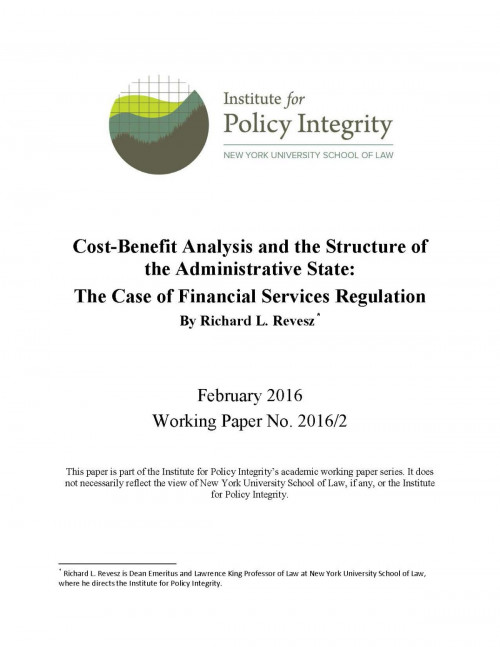
Cost-Benefit Analysis and the Structure of the Administrative State
The Case of Financial Services
The viability and desirability of conducting cost-benefit analysis of financial regulation is a subject of intense academic debate. Opponents claim that such analysis is feasible for environmental regulation but not for financial regulation because of the difference in the benefits that require monetization in the respective areas. This article, which will be published in a forthcoming edition of the Yale Journal on Regulation, argues that the recent debate misses an important part of the problem. In large part, cost-benefit analysis of financial regulation cannot currently be performed successfully because of institutional shortcomings, not analytical difficulties. Compared to Executive Branch agencies, independent agencies, like the major financial regulatory agencies, lack the capacity to do cost-benefit analyses of acceptable quality. Fortunately, there are good Executive Branch models that could be exported to the financial regulatory agencies.
-
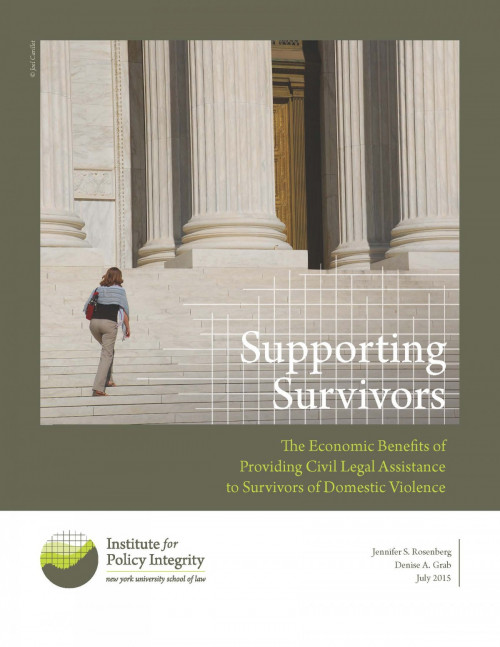
Supporting Survivors
The Economic Benefits of Providing Civil Legal Assistance to Survivors of Domestic Violence
Evidence indicates that the social costs of domestic violence extend far beyond the private costs borne by victims and their immediate families. Supporting Survivors analyzes the social costs of this public health problem and explores civil legal aid efforts, which have been shown to reduce rates of domestic violence by helping victims obtain protective orders and other services.
-
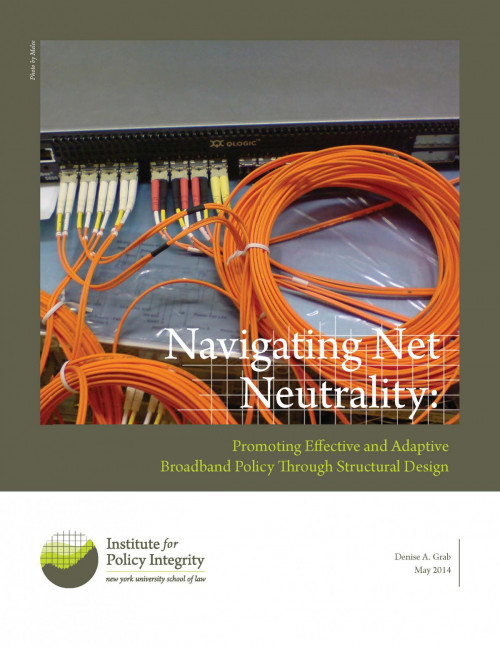
Navigating Net Neutrality
The Federal Communications Commission’s ability to protect the open Internet has been limited, due to recent court decisions. This report examines the regulatory options and recommends to FCC a course forward that will best promote the benefits of widespread Internet access.
-
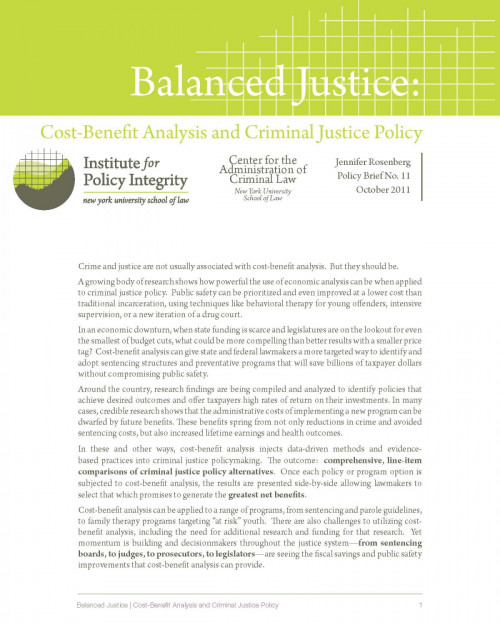
Balanced Justice
Cost-Benefit Analysis and Criminal Justice Policy
Crime and justice are not usually associated with cost-benefit analysis. But they should be, according to new research. This is especially true in an economic downturn, when government funding is scarce. In “Balanced Justice,” released jointly with the Center for the Administration of Criminal Law, author Jennifer Rosenberg reviews a growing body of research showing that counting the costs and benefits of our nation’s justice system can highlight areas of improvement that can save billions of taxpayer dollars without compromising public safety.
Viewing all publications in Consumer and Healthcare Protection
